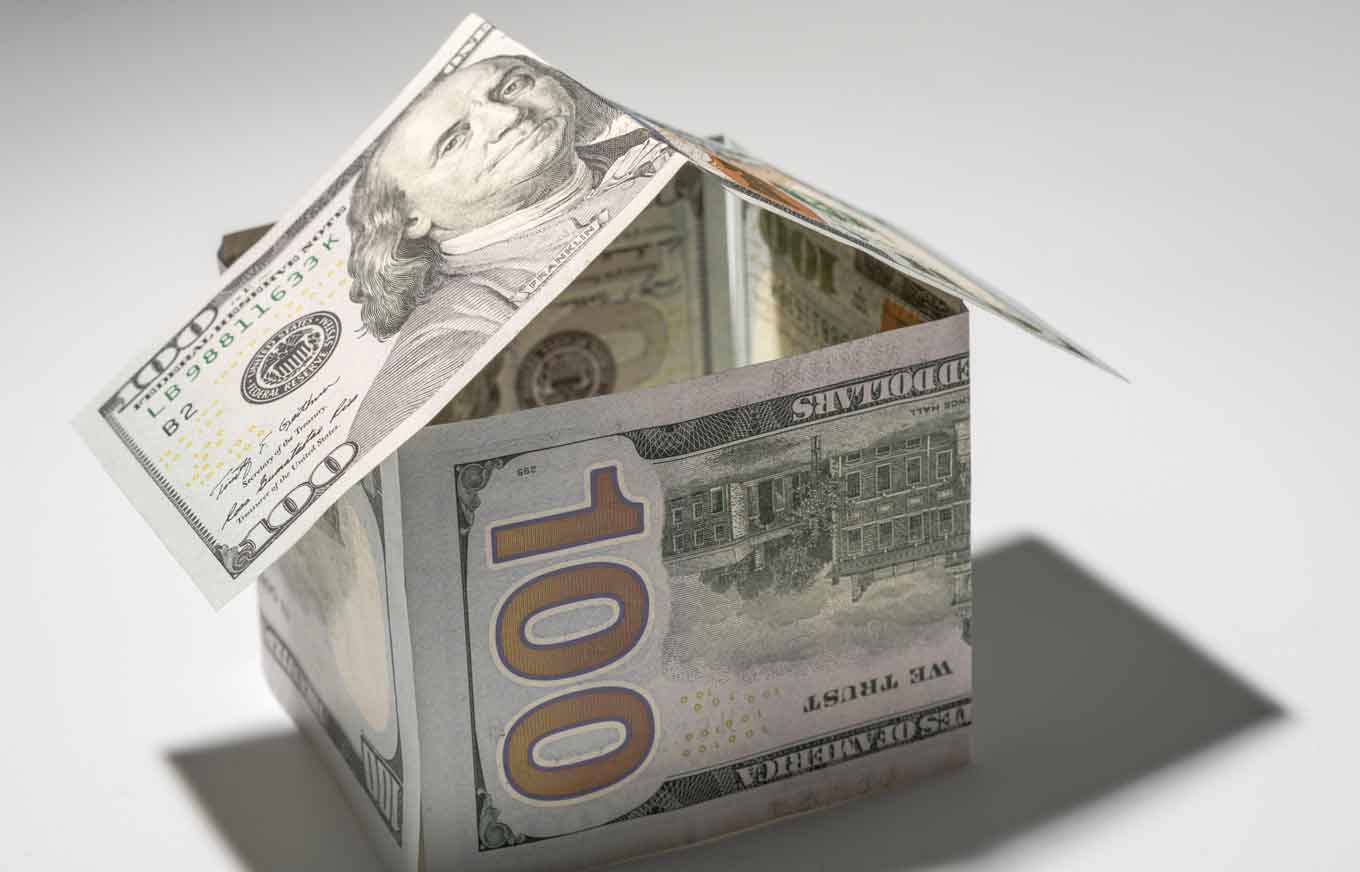
The Guide to Getting a Home Loan After Bankruptcy Discharge
Table of Contents
You can buy a home after bankruptcy; you just have to follow the advice given in the rest of this article. Here, we discuss how to get a home loan after bankruptcy discharge. You will learn who to contact, how to optimize your finances, and so much more about the home loan process after bankruptcy discharge.
Information gathering and careful planning should help you purchase a home after bankruptcy. If you still have questions at the end of the article, make sure to contact Peoples Bank Mortgage. Our experts can help you start the home loan process right away when many other lenders will require a waiting period after bankruptcy.
How bankruptcy impacts getting a home loan
Bankruptcy changes a lot of things in a person’s finances. However, bankruptcy does not have to inhibit you from getting a home loan. It will impact your chances and options, though.
The first thing to know about bankruptcy and home loans is that there are two primary types of personal bankruptcies: Chapter 7 and Chapter 13. Chapter 7 bankruptcy is also called “total liquidation bankruptcy.” It will remove all your debt, but it comes with greater restrictions and consequences. You can think of Chapter 13 bankruptcy as a type of repayment plan. Essentially, your complete debt is not “forgiven,” but you come up with a plan to repay the debt with the help of the court. How much you can afford to pay will determine which debts you repay fully, partially, or not at all.
Whether you have filed for Chapter 7 or Chapter 13 bankruptcy will impact your ability to get a home loan. Whether your bankruptcy claim was dismissed or discharged will also be important. A bankruptcy court can also amend a bankruptcy claim, especially if you file for Chapter 7 bankruptcy. They may determine that you can pay back your loans, and therefore, that you do not qualify for Chapter 7 bankruptcy. A bankruptcy dismissal does not provide any resolution to your financial problems allowing the creditors to continue to come after you for the debt owed. Bankruptcy discharge, on the other hand, will remove your responsibility as a debtor as all your debt claimed in the bankruptcy should be erased.
Some of the biggest impacts of bankruptcy on getting a home loan are a credit score drop and higher perceived risk of default. Generally, a lower credit score and higher risk of default make it harder to secure a home loan. This is true for everyone, whether they’ve filed for bankruptcy or not. You can begin rebuilding your credit profile during and after bankruptcy by taking the correct actions and following sound advice. The amount of time to do so will depend on the exact steps that you take. We will discuss ways to improve your financial and credit outlook later in this article.
The impact of chapter 13 bankruptcy on getting a loan
Of the two types of bankruptcy, the impact of Chapter 13 on your ability to get a home loan is much less than Chapter 7. Remember that Chapter 13 bankruptcy is essentially a repayment plan with your creditors. If you follow the repayment plan, your debt will be discharged often between three to five years after the bankruptcy is filed. Because you are attempting to repay the debt, many creditors will look more favorably on these types of bankruptcies.
Because Chapter 13 bankruptcy affects your credit score differently than Chapter 7 bankruptcy, some lenders will even allow you to apply for a home loan before the bankruptcy is discharged. You may be able to apply for FHA, VA, USDA, and portfolio loans as soon as a year after filing. However, you will still need to qualify for those types of home loans and be in good standing in your bankruptcy repayment plan.
Loans that are not backed by the government will likely require longer waiting periods. Your loan consultant can help you determine which home loans are the right choice for you.
What do you need to qualify for a home loan after bankruptcy?
To qualify for a home loan after bankruptcy, you first need to wait the requisite amount of time. You also need to know your type of bankruptcy. The time limits for Chapter 7 and Chapter 13 are significantly different.
First, let’s discuss the time limits. In Chapter 13 bankruptcy, you can apply for a home loan before the debt is discharged. You must wait at least 12 months after filing, however. If the Chapter 13 bankruptcy has been discharged, there is no waiting period for FHA, VA, or USDA loans. Conventional loans require a 2-year waiting period with discharged Chapter 13 bankruptcies. For Chapter 7 bankruptcy, you must wait at least 2 years after the debt has been discharged to apply for a home loan.
Additionally, you must meet all loan requirements. These requirements will change based on the type of loan for which you are applying.
- FHA: You need to have at least a 580-credit score (minimum will vary by lender), a 3.5% down payment, a debt-to-income ratio below 50%, steady employment and income, and the loan must fall within current FHA loan limits.
- VA: You need to have qualifying military service or be a surviving spouse and have at least a 580-620 credit score (minimum will vary by lender).
- USDA: You must meet their income eligibility requirements, have at least a 640-credit score (minimum will vary by lender) and buy in a rural area.
- Conventional: The requirements of these loans will vary by lender.
Tips to get a home loan after bankruptcy
Waiting the required amount of time and meeting the qualifications for a loan is not enough. You should also take the following tips to make your financial situation look as good to lenders as possible.
- Raise your credit score as much as possible. Reducing your debt and paying all bills on time will help to slowly re-establish your good credit.
- Gather all extra documents required for your loan. All bankruptcy filers will need to present additional documents like the bankruptcy petition and any discharge or dismissal documents. Your lender will tell you what extra documents they need. Some lenders such as Peoples Bank will help you track these down.
- Ensure your income remains stable and build up your savings account. Both actions can help increase your appeal to lenders even if you’ve had a recent bankruptcy.
- Watch your budget. More things make up a mortgage payment than just the loan principal and interest. You will also need to include the cost of taxes, insurance, and mortgage insurance. Knowing your budget ensures you apply for a home loan you can afford, which increases your chances of the loan being accepted.
Below you will find more specific tips for increasing your finances and getting preapproved for a home loan after bankruptcy.
Tips to help your finances 6 months after filing for bankruptcy
Six months after filing for bankruptcy is too soon to apply for a home loan, even for Chapter 13 bankruptcies. However, it is not too soon to start helping your finances. You will likely have seen a decrease of your credit score by 160 to 240 points depending on the type of bankruptcy you file and your previous credit history before filing. Bringing that score up as quickly as possible is the goal.
Here are a few tips to increase your finances six months after you file for bankruptcy.
- Create a new and realistic budget. After filing for bankruptcy, you should reconsider and rewrite your budget. This is something that you should do right away. You must live within your means. Work with a financial counselor if you do not know how to build a wise budget for your financial situation.
- Start saving money. You should write your budget in a way that allows you to save money. Begin a savings account and start adding to it as soon as you can after filing for bankruptcy. Use these funds to first create an emergency fund before saving for a down payment.
- Begin using credit again slowly. Getting a credit card after bankruptcy can be challenging, but there are options for you. Don’t use too much credit too fast, but you should take small steps towards rebuilding your credit score by paying bills on time and opening a secured credit card.
- Avoid the same financial mistakes that got you into this situation. Once you are eligible for a home loan, lenders will look at why you got into this situation and try to conclude if this is likely to recur. This can be the difference in qualifying for a loan or not.
Tips to help your finances 6 months before bankruptcy discharge
Bankruptcies are discharged at different times depending on the type. A Chapter 7 bankruptcy is usually discharged about four months (on average) after you file. However, Chapter 13 bankruptcies can drag on for much longer because you will be expected to pay off your agreed upon repayment plan. Often these bankruptcies are discharged three to five years after the Chapter 13 bankruptcy is filed.
The closer you get to bankruptcy discharge, the more excited you will likely be to have this time of life behind you. But this is not the moment to forget about your finances. In fact, the six months before your bankruptcy discharge can be crucial for your financial future.
- Reevaluate your budget. You should be monitoring your credit report and keeping on top of your budget for the duration of your bankruptcy. But six months before discharge, you may want to reevaluate your budget and financial obligations. Make sure you are setting yourself up for success once the discharge occurs and your bankruptcy payment falls off.
- Keep saving. Now is not the time to stop saving your money. The more savings you have after your bankruptcy discharge, the faster you will be able to get back on your feet.
- Review credit report for accuracy. Many times, incorrect information will be showing on your credit report that could keep you from qualifying or delay your closing.
- Review predischarge guide for more insights. View The Guide
Tips to help your finances 0-12 months after bankruptcy discharge
So, you’ve finally had your bankruptcy discharged. This is a huge moment for anyone. Congratulations! You should now have a much better monthly cash flow and a real sense of accomplishment. You are now potentially eligible for certain loan programs, but many lenders will still have guideline overlays that require a one- or two-year waiting periods. A few lenders will offer you loan options as soon as one day out of discharge. Conventional and Jumbo loans will not become available until you are 2-4 years past discharge.
- Keep good habits. Don’t let the discharge of your bankruptcy allow you to fall back into bad financial habits. Stick with a good budget, pay your bills on time, and slowly rebuild your credit score.
- Monitor your credit report. Knowing where your credit score stands is a good way to ensure your finances are built up correctly. Many banks or credit card companies have credit monitoring programs for free. Use them to stay on top of your credit during this crucial time.
- Keep your bankruptcy paperwork. By twelve months after a bankruptcy discharge, you may be tempted to throw out your bankruptcy paperwork. Don’t do that. This paperwork will come in handy when you are ready to apply for a home loan.
- Do your best to stay in a stable home and job. Keeping a stable home and job can help show creditors that you are a safe bet. Sometimes things happen and homes or jobs must be left. However, do your best to keep a stable home and job situation for the first few years after your bankruptcy discharge.
- Keep rebuilding your credit. By now you should have the tools to rebuild your credit score. You should already be seeing an increase in that score. Keep on the path by paying bills on time, keeping your credit limit low, and living well within your means.
Tips to get preapproved after bankruptcy discharge
Preapproval is an important part of the mortgage process. The pre-approval process determines how much the lender will allow you to borrow when buying a home. It is the first step towards getting a mortgage. You can, and should, complete the preapproval before looking at potential houses, as people with preapprovals in place are more likely to be prioritized by real estate agents.
Use the following tips to ensure you get preapproved after your bankruptcy discharge.
- Waiting periods still apply. Preapproval is part of the mortgage process. Therefore, you cannot start the process until a specified time after your bankruptcy discharge. For Chapter 7 bankruptcies, the waiting period for most home loans (and preapprovals) is two years. For Chapter 13 bankruptcies, you can begin the preapproval process as soon as you have made at least 12 consecutive monthly on-time payments to your bankruptcy plan. Trustee approval is required if you are attempting to purchase a home or refinance a mortgage while still in your bankruptcy plan.
- Here’s where rebuilding that credit score pays off. Spending all that time rebuilding your credit score during and immediately after your bankruptcy will help you get preapproved. While most loan programs allow for a lower credit score, lenders will often have their own overlays, requiring higher credit scores. Even so, most lenders will allow for a credit score as low as 640. The qualified mortgage consultants trained in mortgages after bankruptcy can offer free advice that may help get your scores up if your scores fall below the minimum requirement. Peoples Bank Mortgage can be a great resource here.
- Have the paperwork ready. To get preapproved, you will need the following documents.
- At least 2 years of W-2s
- Multiple months of pay stubs (your lender will tell you how many consecutive months you need)
- At least 2 months of bank statements
- At least 2 years of tax returns
- A letter of explanation about the bankruptcy
- At least 12 months of housing payment history
- A copy of your driver’s license (or other government photo ID)
Make sure you have these documents handy. There certainly will be other documents to gather, but your pre-approval will be much smoother and faster if you have these readily available.
Best available loan programs for those with a past or current bankruptcy
There are several available loan programs. The one you should choose will depend on your unique situation. If you are willing to wait for the required period, you will be eligible for most loan programs with a past or current bankruptcy. But some are more flexible than others.
In general, government-backed loan programs will be the most flexible. These programs are FHA, USDA, and VA loans. Portfolio loans also tend to be quite flexible for people with current or past bankruptcies. Conventional and jumbo loan programs will have the most stringent requirements.
Talk to a mortgage consultant with experience in bankruptcies to learn which loan programs are right for your situation. No matter which program you choose, you will need to show a history of on-time payments and prove that the event that led to your bankruptcy is unlikely to recur.
Common hurdles and bad advice often given
Hurdles will be common when you are dealing with a current or recent bankruptcy. There is also a lot of bad advice out there. Here are a few of the biggest pitfalls and hurdles when applying for a home loan after bankruptcy discharge.
Hurdles
- Wait periods. As we have seen, wait periods will differ depending on the type of loan you apply for, the lender you work with, and your type of bankruptcy. Waiting the required amount of time can feel interminable but doing so is essential to qualify for your loan of choice.
- Low credit score. Bankruptcy is going to lower your credit score quite a bit, which negatively impacts your ability to get a home loan. You will need to wait until your credit score has risen enough, which can take time.
- Finding a lender with extensive bankruptcy experience. Many lenders will claim to be able to help secure a mortgage after a bankruptcy and may also claim to have extensive experience doing so. This is usually not the case. Most lenders only process mortgages for bankruptcy clients occasionally if their guidelines even allow them to do so. It is therefore very important to work with a lender that has worked with hundreds or thousands of bankruptcy clients to ensure they have the experience necessary to help you properly navigate through the process and avoid the pitfalls.
Bad Advice
- Take on as much credit as possible. Taking on a lot of credit immediately following bankruptcy is not a great idea. First, you may not be eligible for many lines of credit. Second, it is imperative that you not borrow more than you can afford.
- Use a credit repair service. While there are honest credit repair services out there, do your due diligence to find a reputable company. Stay away from any credit repair service that says they can remove accurate information or provide you with a new identity. And diligently research the pros and cons of credit repair services before deciding to use one.
- All lenders have the same requirements for borrowers with a bankruptcy and you must wait to qualify. Unfortunately, there are many lenders who do not understand the parameters to qualify someone for a mortgage after going through a recent bankruptcy. So, if a lender tells you that you must wait to get a mortgage, make sure you get a second opinion. A bank that specializes in helping clients get in position to qualify for a mortgage loan after bankruptcy such as Peoples Bank Mortgage welcomes an opportunity for a second look at a potential mortgage loan.
FAQs section
Want some more information about getting a home loan after bankruptcy? Here are some of the most common questions we get at Peoples Bank Mortgage answered.
- Do you offer down payment assistance programs?
No. Unfortunately, down payment assistance programs are no longer very common. They still exist but are not accepted by Peoples Bank. Instead, we offer two loan programs that require a 0% down payment.
- Can I roll the closing costs into the loan?
This will depend on the type of transaction you are pursuing. If you are purchasing a home, closing costs will need to be to be paid out of pocket. If you are refinancing your current home, closing costs can often be rolled into the loan. However, this will depend on the type of loan you apply for and your lender. Most lenders will look at your loan-to-value ratio (LTV) and debt-to-income ratio (DTI) when determining if they will allow this action.
- What’s your interest rate?
Interest rates are nearly impossible to quote in a general way (especially in a volatile market) as interest rates often change various times throughout the day. The interest rate you are given will depend on your unique borrowing qualifications and the current market. To determine an interest rate for you, we will take the current market rate and then assess the risk factors of your file. People with lower credit scores and lower down payments for example, are considered a greater risk, thus their interest rate will likely be higher. Those with perfect credit and 20% + down payments will likely qualify for lower interest rates. If you are getting quotes from multiple lenders, it is very important to get them the same day and even within a few hours of each other. Otherwise, you may not have an accurate side by side comparison. In a rising rate market, we recommend locking in your interest rate as soon as possible. To get a rate quote, you will need to contact one of our mortgage consultants. They will advise you on the best rates available and educate you on your lock options.
- How much money do I need?
The exact amount of cash you will need on hand will depend on the type of loan you receive and its requirements. In general, though, the lender will want to see that you can afford the following costs.-
- Down payment: Depending on the loan product you qualify for; this could be as low as 0-5% of the purchase price.
- Closing costs: These are typically 2-6% of the loan amount.
- Mortgage payment, homeowner’s insurance, maintenance and utilities, and property taxes: These are all ongoing expenses that you will need to pay monthly.
- HOA fees: This is an ongoing expense that only applies to certain communities.
At the very least, you will need a consistent income that covers the monthly costs of owning the home as well as enough cash on hand to pay the down payment and closing costs.
-
- What credit score do I need?
The credit score you need depends on the loan type and the lender you work with. If you have a bankruptcy on your record, your lender may require a higher score than the loan program minimum requirements. Many potential borrowers after bankruptcy think their scores are lower than they are or that it will take many months to bring up their credit score; however, this is not always the case. Often, borrowers are in a better position to take out a mortgage than they realize. Many lenders will allow for a credit score as low as 640 whereas our minimum requirement is 620. The experts as Peoples Bank Mortgage are often able to help guide you to get your scores up if your scores fall below the minimum requirement.
- How can you help me (after bankruptcy) when other banks can’t?
At Peoples Bank, we have spent the last ten years perfecting our process to help people receive home loans after bankruptcy. That has led to our most recent program offerings and a history of successful mortgages for our customers. We have successfully worked with thousands of clients with past bankruptcies over this period. When you have gone through bankruptcy, many lenders may not want to take the risk of working with you. However, we do not have that problem. We do the hard work to improve your credit, clean up your home’s title, and educate you on the best mortgages for your goals. Let us help get you to the closing table. Contact us today.
- Why do you need my . . . (tax return, bank statements, etc.)?
The documents your lender requires serve an important purpose. They all prove that you can afford the initial and ongoing costs of owning the home. Your tax returns provide important verification of your income for the last two years. The recent bank statements assure the lender that your current income is stable and that you do not bounce checks, have large deposits without a documented source, or have an undisclosed credit account.
- Why do I need reserves?
Reserves is another name for the funds you have in savings after accounting for all the costs of the mortgage. The lender wants to see that you have enough money saved to cover your housing costs (including principal, interest, taxes, and insurance) for a certain amount of time and that you have money left. Mortgage reserves are not required for everyone. However, if your credit is imperfect, or you are coming off bankruptcy, reserves are needed to ensure the lender that you are a good candidate for the loan.
- Why isn’t . . . (my mortgage, my auto loan, etc.) reporting to credit?
A delay is the most common reason a mortgage, auto loan, or something similar is not reporting to credit. It can take up to 60 days for mortgages or auto loans to be reported to credit. However, sometimes paperwork errors or mistakes cause this problem. Additionally, you might be looking at the wrong credit report. Some mortgage or auto loan lenders only report to a specific credit report. If you still do not see the line of credit on your report after sixty days, contact your lender. Well trained mortgage lenders such as Peoples Bank will review your credit report with you in detail and help you correct any errors that are found.
- Why does my credit score online say one thing and you are saying another?
There are several reasons why your credit score online may be different from the one we received.
-
- TransUnion, Equifax, and Experian all calculate your credit score differently, which results in a slightly different score depending on which bureau we pulled it from.
- There could be reporting delays or errors.
- The credit scoring model your online source uses may be different than the model we use.
- One of the scores may be outdated.
- A credit score pulled for a different loan type or purpose, i.e. For a mortgage, will generate a different score then when pulled for another loan type, i.e. for a car loan.
- Why did my credit score drop when you pulled it?
Any time there is a hard inquiry into your credit, there will be a decrease in your credit score. These hard inquiries occur anytime you apply for a new credit card or loan. Having your credit pulled is a requirement to apply for a loan and often helps the lender give you sound advice on how to improve your credit. When credit is pulled multiple times for the same reason within a 30-day window, i.e. for a mortgage, this will only count as one hit to your credit.
- How much are the closing costs?
Closing costs typically end up at around 2-6% of the loan amount. However, these costs vary significantly from lender to lender and state to state. A mortgage consultant can give you the best information about the exact closing costs for your loan scenario. There are sometime options to have the seller on a home purchase contribute to these costs as well as ways to roll the costs into the loan amount or rate on a refinance transaction. All lenders have closing costs, but there are various ways to structure them. Don’t be fooled by the common advertisement of zero closing costs as the lender is simply recouping these costs in other ways such as through the rate offering.
- How long is a pre-approval good for?
A pre-approval is good for up to 60 days. If your search for a home goes on longer than that, you will need to update your documentation for the lender to reissue a pre-approval.
- How do I know if I’m in a 100% repayment plan?
In Chapter 13 bankruptcy a 100% repayment plan means that you need to repay 100% of the debt you owe. Often filing for Chapter 13 bankruptcy allows the petitioner to reduce their repayment because of their available income or monthly expenses. In a 100% repayment plan, no reduction of the debt was offered. You will know that you are in a 100% repayment plan if your debt amount was not reduced. This will be indicated to you when the court rules on your Chapter 13 application. Reasons for a 100% repayment plan are a high income and a large amount of nonexempt property.
- My debt was not reaffirmed after discharge. What does that mean?
This means that the debt will no longer report to the credit bureaus. However, if the debt was not fully discharged in your bankruptcy plan, you will still be liable for the payments associated with the debt. If the debt is reaffirmed, it will begin reporting to the credit bureaus once again. Reaffirming the debt could be advantageous to your credit scores especially if you have a history of on-time payments to the creditor.
- I have not filed taxes yet, and I am self-employed. How much do I need to show to qualify for a mortgage?
Typically, lenders will want at least two years of tax returns for self-employed candidates, but this is not always the case. Talk to your lender about their requirements for self-employed loan applicants. The amount of income one needs to qualify for a mortgage depends on the loan program, outstanding debt, proposed mortgage payment, and several other factors. A typical rule of thumb is that a borrower should spend no more than 33% of their gross income on housing per month, but some loan programs allow for this to go higher.
- How long does the process take?
Receiving a mortgage and closing on a home is not a quick process. In fact, it takes a lot longer than many people expect. Even if the lender approves your loan application immediately, the entire process may drag on for much longer. The average mortgage process takes about 30 days. However, in high-volume periods, the average increases to 45-60 days. Those people applying for a home loan after bankruptcy should expect the mortgage process to be on the longer side of that estimate.
- Do we order an appraisal or does the bank?
Your lender, or bank, will order the appraisal, but you will need to pay for it. The appraiser’s fee will be part of the closing costs and in most cases will need to be paid at the time of service prior to the closing of the loan. Federal regulations do not allow borrowers or lenders to have a familiar relationship with the appraiser. Therefore, lenders must use a 3rdparty appraisal management company to order your appraisal and manage the appraisal process.
- How long is required in my current job to qualify?
Your work history and income are two of the most important factors in qualifying for a mortgage. Lenders and underwriters want to see a stable income and job history. However, there are a lot of nuances that go into interpreting your unique situation. For example, most self-employed individuals must show two years of income. But those with a guaranteed salary can use that salary as their income immediately. Additionally, you may be able to explain breaks in your employment history in certain instances, such as taking time away to start a family, or you have recently graduated. A recent career change is also not necessarily a deal-breaker if frequent career changes are not a pattern in your work history. Because every work history and income scenario are different, it is best to talk to a mortgage consultant about your unique situation. These professionals will be able to provide recommendations for showing your work history and income in the best light possible.
- How do I get my credit score up if I am in active bankruptcy or newly discharged?
Whether you are in active bankruptcy or have a newly discharged bankruptcy, getting your credit score up should be a priority. The better your credit score, the more likely you are to receive a home loan. While rebuilding a credit score will not always be a quick process, you can use the following tips to get started.
-
- Keep track of your credit reports. Check all three bureaus for errors and monitor your scores going forward.
- Use credit. Only open new lines of credit that you can afford. Typically, only one or two small, secured credit cards are all you need to build your credit.
- Keep the utilization ratio low on your credit card. Once you qualify for a new credit card, make sure the balance never gets any higher than 10% of its limit.
- Pay everything on time. On-time payments over a long period will positively impact your credit score.
- Be careful not to have too many inquiries to your credit. Oftentimes, applying for something like a car loan will mean many inquiries to your credit which will have a negative impact on your credit scores.
- When is the next time I will be able to refinance?
You will be able to refinance after both Chapter 7 and Chapter 13 bankruptcies. However, the waiting times will depend on your type of loan.
-
- Conventional loans: Typically, 4 years after discharge for Chapter 7 and 2 years after discharge for Chapter 13.
- FHA: Typically, 2 years after discharge for Chapter 7. You can refinance before discharge with Chapter 13 bankruptcies, but you need to have made at least one year of on-time payments.
- USDA: Typically, 3 years after discharge for Chapter 7. You can refinance before discharge with Chapter 13 bankruptcies, but you need to have made at least one year of on-time payments.
- VA: 2 years after discharge for Chapter 7. You can refinance before discharge with Chapter 13 bankruptcies, but you need to have made at least one year of on-time payments.
- What are the closing costs, and why do I have to pay for them?
Closing costs are the fees you owe your lender. You must pay these fees before you can take possession of your new home. Most closing costs end up being between 2-6% of the loan amount. Although they vary by lender, the closing costs typically cover the following expenses.
-
- Application fee
- Appraisal
- Attorney fees
- Closing fee
- Credit reporting fee
- Escrow funds
- FHA funding fee (if receiving an FHA loan)
- Flood certification (needed for homes near a floodplain)
- Homeowners’ association transfer fee (if you are moving into an HOA community)
- Homeowners insurance
- Lender’s title insurance
- Origination fee
- Owner’s title insurance
- Pest inspection
- Points
- Prepaid daily interest charges
- Private mortgage insurance (PMI)
- Property tax
- Survey fee
- Title search fee
- Transfer tax
- USDA funding fee (if receiving a USDA loan)
- VA funding fee (if receiving a VA loan)
- Water test
Clearly, there are a lot of fees that go into the closing costs. The lender must reveal the closing costs to you before you close on the mortgage. While there are many fees included in the closing costs, most fees are paid directly to third parties who render the services.
- Are we the lender or are we brokering out to someone else?
At Peoples Bank Mortgage, we are the lender. We control every aspect of the loan process through closing and are actively closing and funding loans in all fifty states.
- Is the bankruptcy trustee going to make me pay more to the bankruptcy plan if I take cash out of my home?
They might. If there is a major change in your income during your Chapter 13 repayment plan, that could cause your monthly payments to increase. Remember that some ways to take cash out of your home, such as refinancing, also have wait times when you are in active bankruptcy. If you choose to take cash out of your home, you must report that change in income to the bankruptcy trustee.






